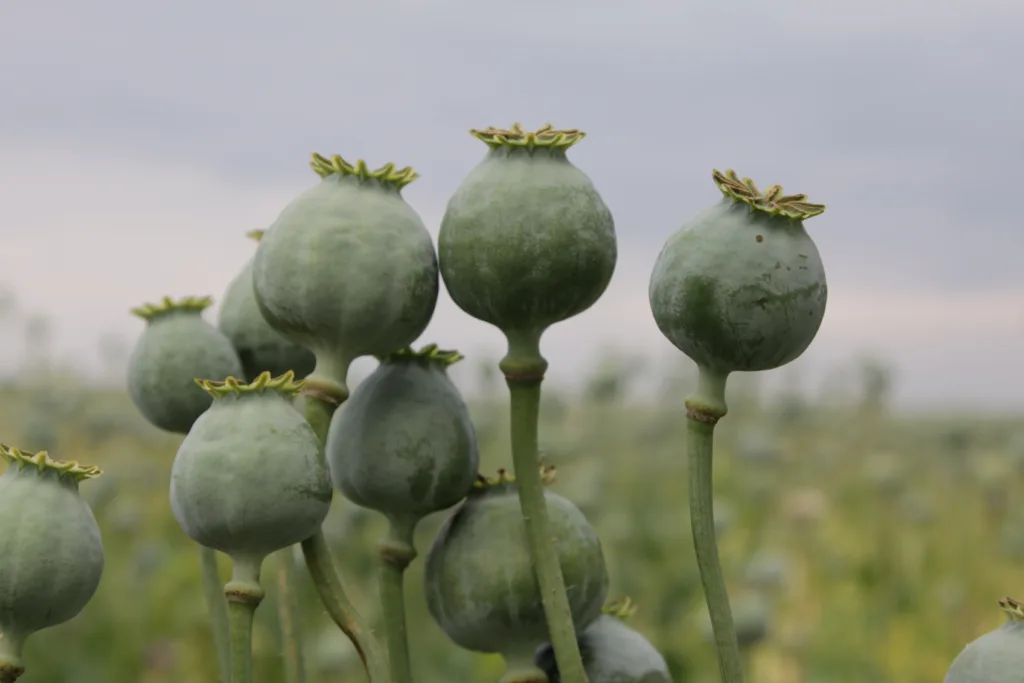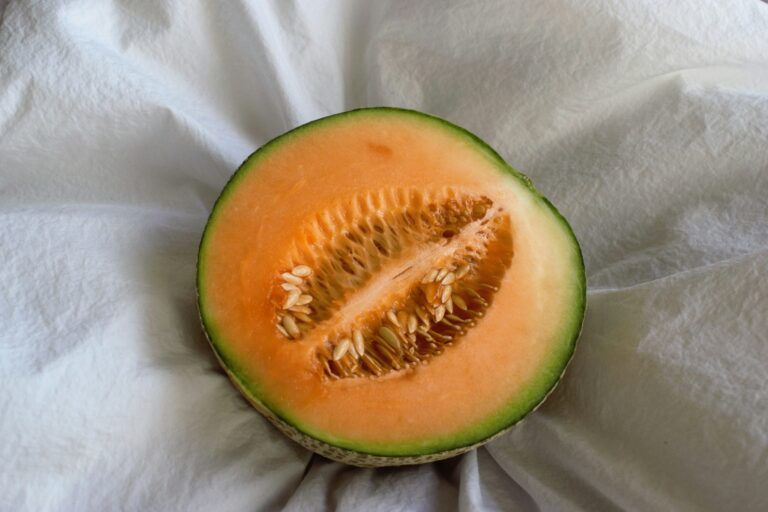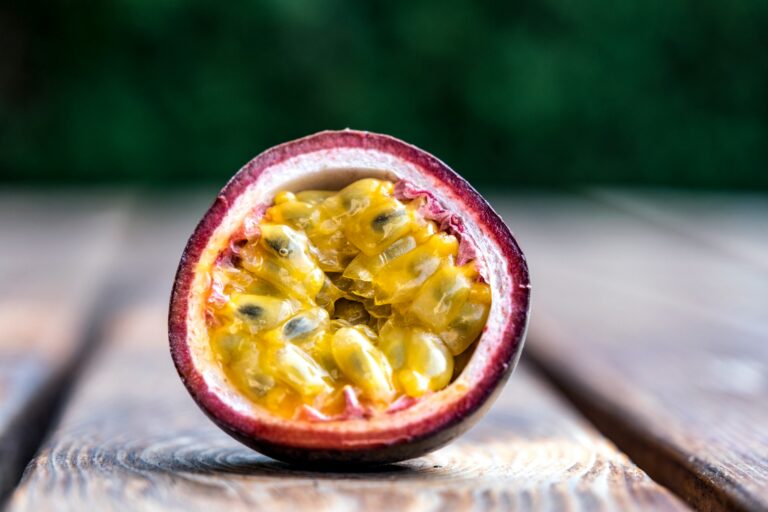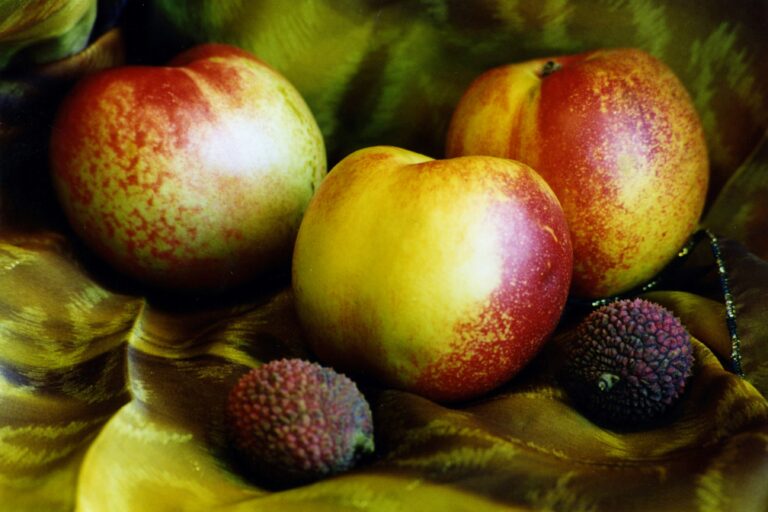The scientific name of the poppy seed is Papaver somniferum. Khus khus is another name used for poppy seed in English. The center of origin of poppy seed is the Western Mediterranean region of Europe. The top producer is the Czech Republic with 28000 tons, followed by Turkey, Spain, France and Hungary. Poppy seed is cultivated in India, China, Egypt, and Russia mainly for pharmaceutical purposes.
Color: the color of poppy seeds of some varieties is white while other varieties change from blue-black to solid black color
Shape: the shape of poppy seeds are small and kidney-shaped. They are actually shaped like commas with lobed or dissected leaves and milky saps
Size: Poppy seeds range in various sizes. Length ( 0.04 inch )
Flavor: Mild, nutty taste popular in baked goods and in bread items. Poppy seeds have a faint smell
Nutrients
Poppy seeds are important and very beneficial for the human body as they are fully packed with nutrients. Poppy seeds are perfectly edible, the rest of the plant is poisonous. They are rich in numerous minerals but their most important and excellent source of nutrients are iron, calcium, phosphorus, magnesium, and zinc. Some of them are described below:
- Calories 46
- Protein 1.6 g
- Fats 3.7 g
- Carbohydrates 2.5 g
- Fiber 1.7 g
- Manganese 26% of the Daily Value
- Copper 16% of the Daily Value
- Calcium 10% of the Daily Value
- Iron 5% of the Daily Value
- Phosphorus 6% of the Daily Value
| How to grow poppy seeds? |
Healthy Benefits of Poppy Seeds
Poppy seeds are delicious, nutritious, and easy to enjoy in a number of different recipes. Poppy seeds help in reducing the level of harmful cholesterol in the body and maintain the level of good cholesterol.
Boost heart and skin health
Poppy seeds are primarily rich in both mono and polyunsaturated fats which is beneficial for the proper functioning of the heart and for better skin. A diet rich in unsaturated fats may the risk of stroke and heart attack by up to 17%. Fats in poppy seed oil may be effective and supportive in wound healing as well as prevent scaly lesions when applied directly to the skin.
Improvement of fertility
Poppy seeds play an essential role in boosting fertility, especially in females. These seeds help to remove mucus from the fallopian tubes and aid in achieving the pregnancy. It is thought to be believed that oil improves the chances of implantation. Poppy seed not only flushes the fallopian tube but also the uterus.
Maintain blood pressure
The presence of oleic acid in poppy seeds helps in normalizing blood pressure and is extremely pivotal in both high and low blood pressure. Also, it diminishes the chance of heart attack, stroke, and heart blockage.
Improve digestion
Poppy seeds are a rich source of insoluble fibers and help in treating constipation effectively and strengthening the digestive system. These seeds improve the absorption of nutrients from the food.
Bone strength
Poppy seeds are rich in minerals like copper and incredibly rich in calcium, poppy seeds help in improving bone health and connective tissues. It also improves bone mineral density. Manganese in the poppy seeds helps in the production of protein collagen that protects bones from damage and also enhances overall bone health.
Fights insomnia
Poppy seeds are effective in inducing sleep. The poppy seeds help in bringing down the stress level. It creates a calming effect. Poppy seeds help to reduce the level of cortisol which is a stress hormone and therefore provide a better and peaceful sleep.
Best for eyes
The antioxidant and zinc present in poppy seeds helps to prevent eye diseases such as Macular Degeneration. It also aids in improving the eyesight.
Good for thyroid
Poppy seeds play a crucial role in proper thyroid functioning because of the presence of zinc which is an essential element present in the poppy seed. The diabetic patient also consumes Khus Khus seeds as their daily medication or as a diet.
Side Effects of Poppy Seeds
Poppy seeds should be consumed in moderation. Poppy seeds used for the treatment of insomnia should be monitored. Overeating poppy seeds may lead to the blockage of bowel movements, diarrhea, vomiting, and nausea. Poppy seeds can also adversely affect the development of an unborn child so pregnant women should not consume poppy seeds.
FAQ
What is poppy seed good for?
Poppy seeds are so full of nutrients, they are significant and extremely good for the human body. Poppy seeds are completely edible, yet the plant as a whole is toxic. Although poppy seeds include a wide variety of minerals, iron, calcium, phosphorus, magnesium, and zinc are the most vital and superior nutrients found in them.






